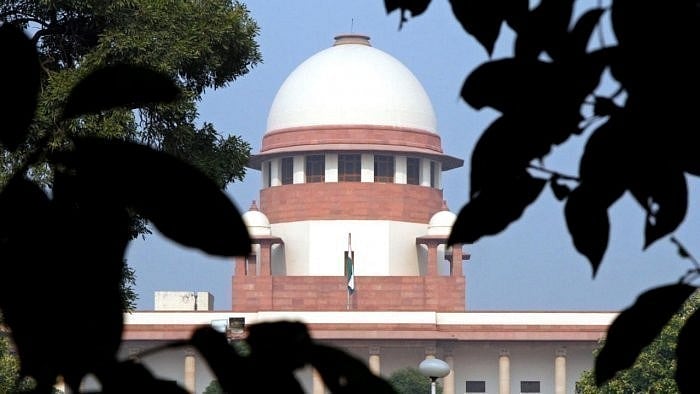
The Supreme Court of India.
Credit: PTI File Photo
New Delhi: The Supreme Court has said that mere involvement in a demonstration after a communal flare-up, however serious, does not transform the participants into a ‘gang’ without evidence of organised and continuous criminal activity.
A bench of Justices Vikram Nath and Sandeep Mehta held that stringent state laws such as the UP Gangsters and Anti-Social Activities (Prevention) Act, 1986, cannot be applied to individuals solely for their involvement in a single incident of anti-social activity.
"When a statute creates serious fetters on personal liberty, the evidentiary foundation for its invocation must be commensurately strong, supported by concrete, verifiable facts rather than vague assertions," the bench stressed.
The court also emphasised, the constitutional guarantee of personal liberty acquires even greater significance when extraordinary legislation with stringent provisions, such as the UP Gangsters Act, is invoked.
In a judgment delivered recently, the apex court quashed an FIR, which originated from a social media post allegedly defaming a particular religion, that subsequently led to violent protests involving the appellants, Lal Mohd and others.
The court found while the FIR alleged that appellant led an ‘organised gang’ with numerous co-accused, it provided no substantive evidence of hierarchical structure, systematic planning, or coordinated criminal activities that would distinguish this group from a group of individuals involved in a spontaneous communal protest.
The FIR contained a mere conjectural statement, neither corroborated nor substantiated by the facts available on record.
“The narrative suggests a reactive response to instigation caused by an inflammatory religious post rather than premeditated gang activity. The mere listing of multiple accused persons without demonstrating their organisational roles, command structure, or evidence of prior or continued coordinated criminal activities fails to meet the stringent requirements for establishing gang membership,” the bench said.
The court found that the whole incident appears to have been triggered by the incendiary social media post made by a person tending to defile the religious sentiments of the appellants and other co-accused rather than by calculated gang objectives of securing material advantages or establishing territorial control.
The appellants argued that the allegations as set out against them in the FIR do not meet the threshold justifying the invocation of the UP Gangsters Act.
The bench said, "The mere listing of multiple accused persons without demonstrating their organizational roles, command structure, or evidence of prior or continued coordinated criminal activities fails to meet the stringent requirements for establishing gang membership."
It also said mere involvement of the accused in a demonstration pursuant to a communal flare-up, however serious, does not ipso facto transform the participants into a ‘gang’ without evidence of organised and continuous criminal activity.
